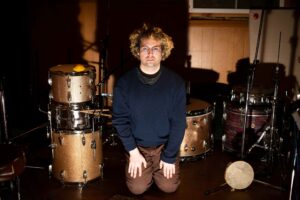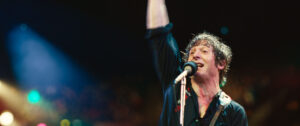On ‘Once Upon A Time In Shropshire’ Jerskin Fendrix Explores Everything, Everywhere, All at Once
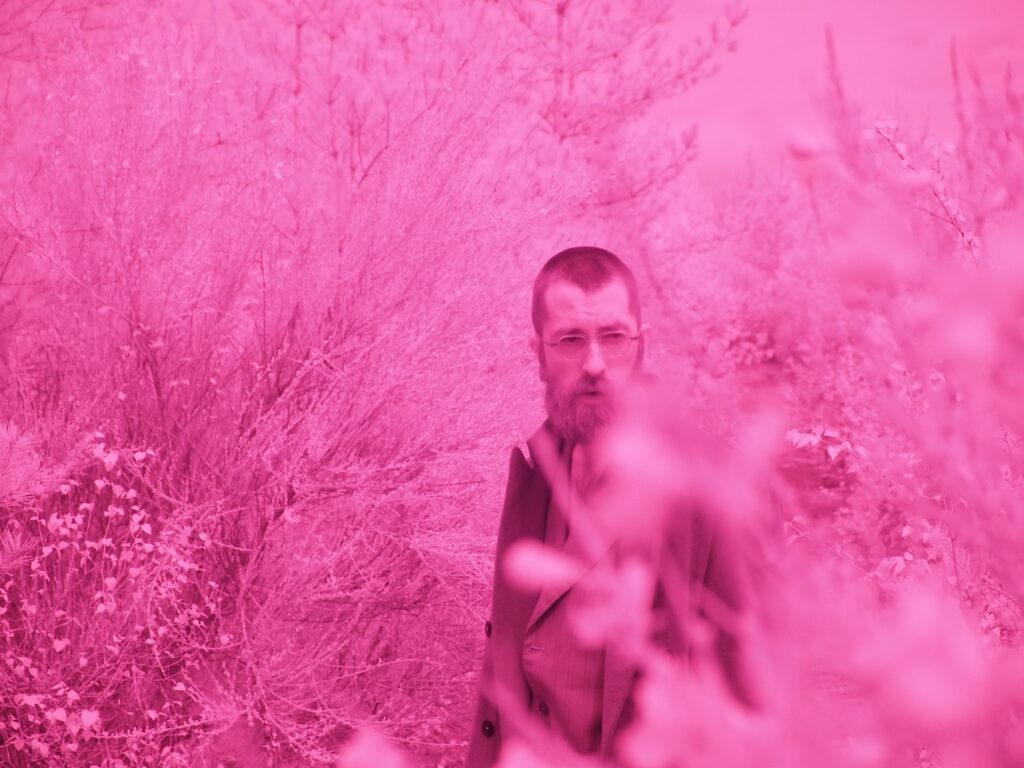
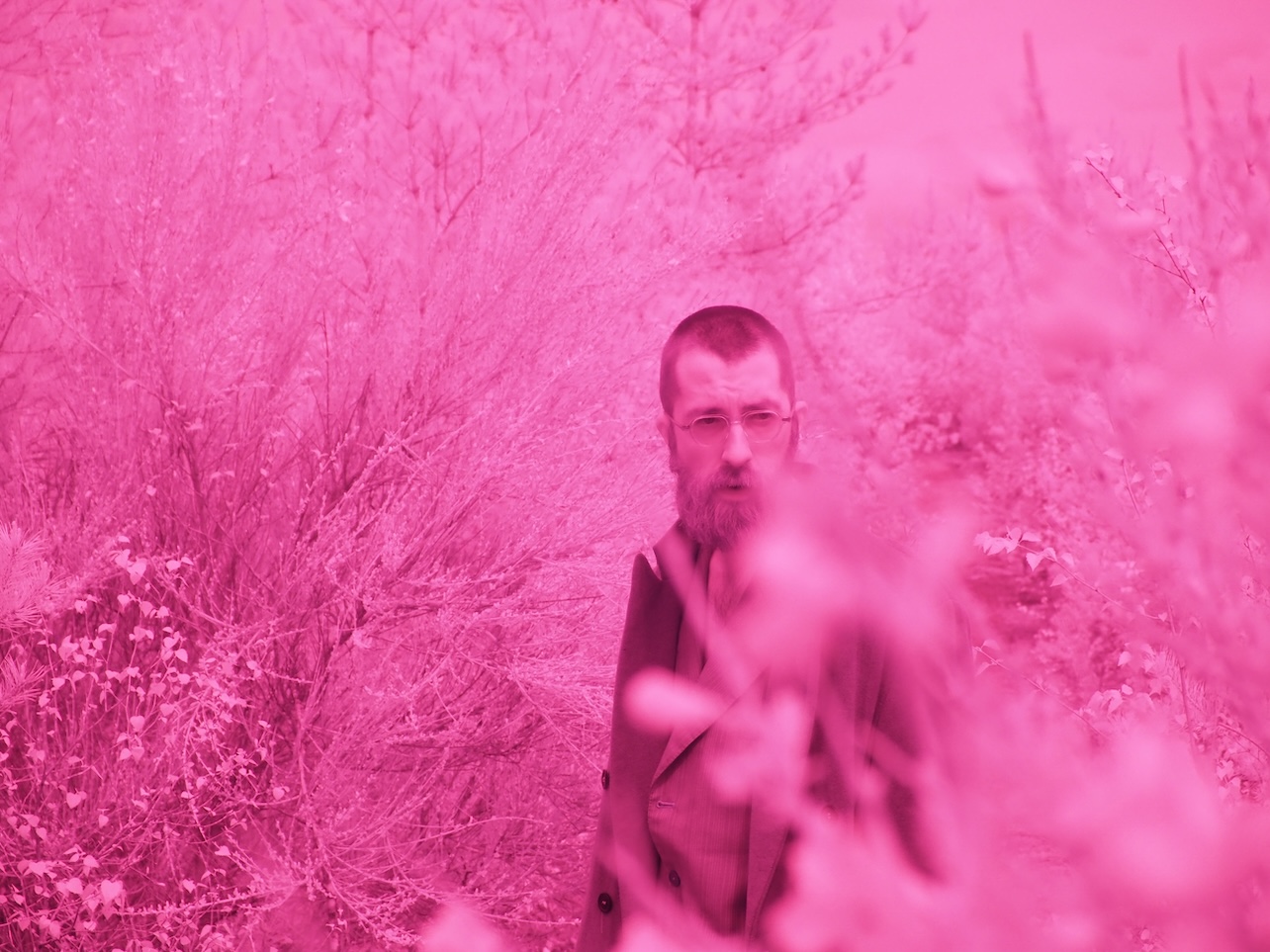
Much like the origins of his unique stage name, musician Jerskin Fendrix is a creature of distortion.
As the title of his second studio album implies, Once Upon A Time in Shropshire is a cathartic homage to his eclectic formation as a musician, an odd odyssey through the corridors of his past, distilling precious memories reflected through a glass darkly.
More from Spin:
- Even War Can’t Stop Ukrainian Power Trio Death Pill
- DEF JAM’s LONG STRANGE TRIP
- King Gizzard & The Lizard Wizard Hear A Symphony On New LP, Tour
While arguably nostalgia-tinged, like everything regarding Fendrix’s rise to prominence, it’s also an album that exists beyond the rigidity of a defined genre, existing on its own spectrum of tonal contradictions. It’s not so much a road map through uncharted territory—speaking as it does to universal experiences of grief, the loss of childhood, or the inevitability of death—but rather a journey of idiosyncratic stops and starts. In short, it’s a little bit of everything, everywhere, all at once.
Born Joscelin Dent-Pooley, Fendrix’s nom de plume is an anointed amalgamation of essence, a stage name serving as more an umbrella term for his varied exploration. His 2020 debut album Winterreise, arguably a break-up album, which takes its name from Schubert’s cycle of the same name and mines similar sentiments, caught the ear of film director Yorgos Lanthimos, who asked Fendrix to score his revered 2023 film Poor Things (netting Fendrix an Academy Award nomination). They also collaborated on 2024’s The Kinds of Kindness as well as Lanthimos’ forthcoming feature Bugonia.
Fendrix, who rose to local prominence at the Windmill Brixton, a pub and venue in South London, suddenly achieved significant international acclaim through Lanthimos’ surreal and absurdist cinema. But those yet to discover Fendrix outside of his film scores might be surprised at his complexity of kaleidoscopic sounds. He dabbles in so many genres that to describe it might simply result in a running list, tapping as it does into his training in classical composition with the violin and the piano and exploding into fragments of electro-pop, infused with a brooding, eloquent baritone recalling Nick Cave or Leonard Cohen.
Describing an ‘emotional immersion therapy’ during his writing and recording of Once Upon A Time in Shropshire, Fendrix suggests a first listen might be off-putting to some, as certainly this eulogy to his childhood is hardly a fairy tale. And yet, it’s a strikingly personalized portrait of his integrity as an artist and a human, made all the more potent by retreating towards vulnerability rather than exploding outwards.
Once Upon a Time in Shropshire comes out in October, around the time Bugonia will premiere. It struck me that you finished writing this album in 2023, about the time Poor Things came out. I’m curious how you feel revisiting all these emotions?
Yes, doing the film work did change the process. I think for good. It meant I had to spend some long periods away from the album and what I was thinking about. I think that really helped let me reassess what I was actually trying to say and what could have been potentially a more instinctive or reactively emotional album. I think this actually let me have space to consider everything from a wider viewpoint. As a result, a lot of the grief felt a lot more mature. That was a great benefit.
I finished all of the lyrics and recorded all the vocals over a few months at the beginning of 2023. There were a number of weeks on end by myself in a studio. I found it very difficult.
I found it interesting that you’ve described the album as potentially off-putting to some people. I was wondering if you think that’s because collectively we tend to shy away from these kinds of feelings in our past.
Well, I think some of the stuff that might be hard about it is to do with approaching different subjects, and especially ones that are quite heavy for a lot of people. My instinct with writing it was thinking a lot about how grief and loss are usually approached in art. There seems to be this default rule book. Let’s say in a film, if someone dies, I can expect to hear that very high-stringed note. You get a close-up of someone looking sad, and it’s grey and it’s raining. The same with songs about breakups or songs about death.
There’s a set of musical dogmas about mood and how they’re arranged. They’re nothing to do with death. They’re just like, “These are the clichés attached to them.” Which exists for a reason, but I think when you are exposed to them too often, firstly, they lose that meaning and rawness. You’re just listening to the sign rather than the actual content. Also, these cliches oversimplify and are dishonest about the real-life experience of grief and can negatively affect real-life grief because I’ve talked to so many people throughout my life who have said they felt guilty about feeling the wrong thing.
It’s like, “Oh, it’s not just you’re sad for six months and then you’re fine.” Sometimes it seems really trivial, sometimes it can be dark. I think these are all really legitimate human feelings, and a lot of people feel guilty about those because when they see a similar event portrayed in a TV series or a film or a song, they’re like, “Oh, I’m not acting the same way as this good actor is. I’m not having a single teardrop.”
I wanted to think as hard as I could about what’s the actual honest experience of this. Even if that means maybe coming off as insensitive or glib or using humor in places where it’s not usually used. All of that stuff. I think it can be difficult to hear death talked about in those terms sometimes.
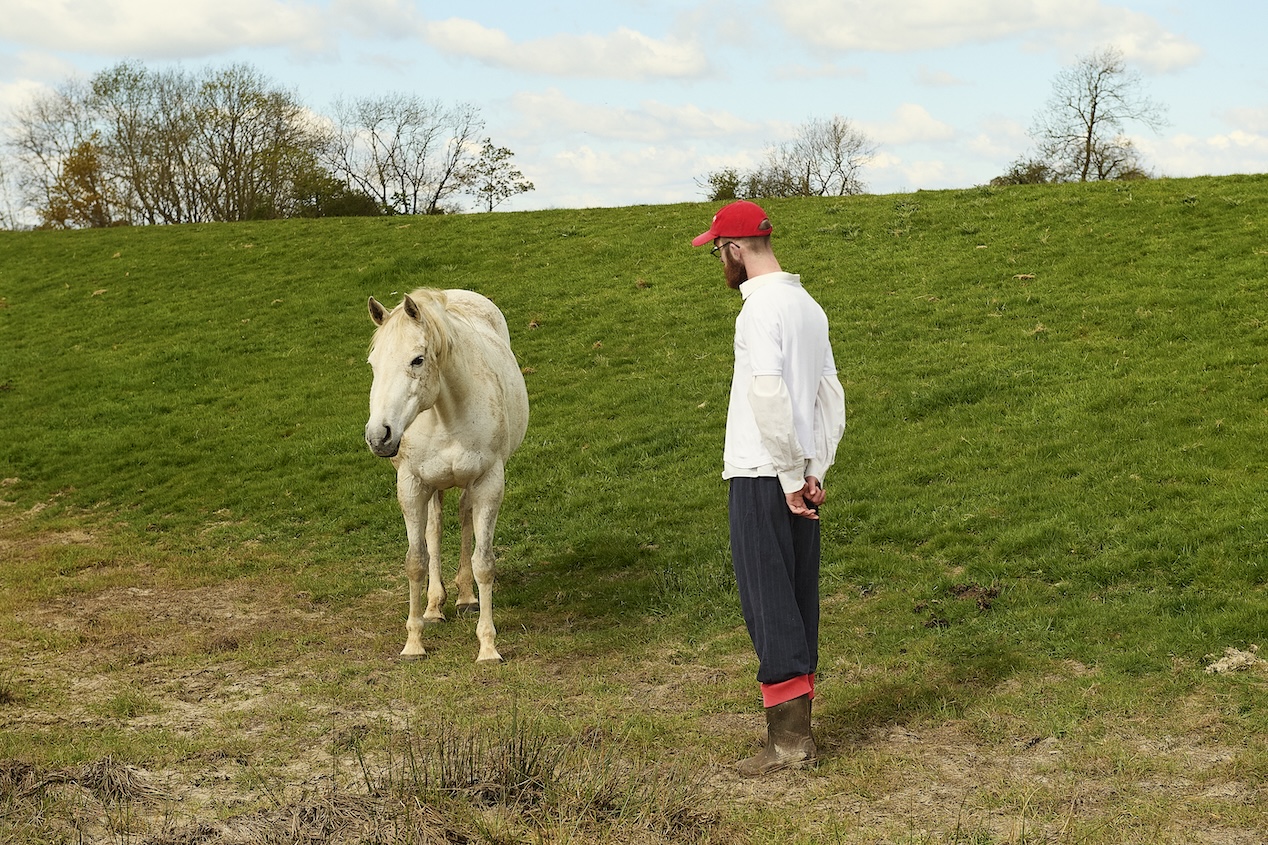
You certainly resist cliché. I found Shropshire very unexpected. What I responded to strongest is this sense of a loss of childhood innocence. You encapsulate in a lot of different ways that loss.
I appreciate that. I think I showed it to a friend of mine really early on. She used the word “testament,” which I like as a word. I think I’m happy about having made the record. I’m glad I have something which is a testament and something which allows me to have this memory of where I’m from and everything around it, even though it is in a lot of ways very sad. I’ve been very lucky to have a testament to that part of my life. I think without it, it could have easily dissolved into the ether as it so often does.
When I listen to you, I think of Nick Cave, Leonard Cohen. With the opening track, “Beth’s Farm,” I thought of DeVotchKa, building to these beautiful orchestral swells. It’s also tonally different from everything else on the album, delivering some of that hopeful escapism the rest of the album resists a bit.
We spent a lot of time on that farm when we were kids. There are a lot of animals there, and it’s not like a farm for slaughter or anything. It’s a rescue farm to some extent. They have rare breeds they’re just looking after. I like the idea that we refer to it as a deathless farm, even though obviously animals do die there. As a symbol, as an actual place, and also a symbol of something which is so cosmically innocent and utopian from a childhood point of view. I wanted that as an uncorrupted set up just to explain what the whole thing was before going into how everything does eventually crack.
“Beth’s Farm” feels like the glow of childhood and sets us up for this journey, ending appropriately with the last track, “Last Night in Shropshire.” Tell us about “SK1” and “SK2” since they’re divided in their separate ways.
I think the chronology of the album is, to some extent, linear. It bounces back and forth a bit, but generally the progression of coming of age, going from an innocent point of view to something which is overseeing a lot of things having happened. How do I describe that? To some extent, this is my entire life.
I left Shropshire when I was 18 and I would come back and revisit on a number of occasions over the following seven or eight years. I moved to Thailand. I went to university. I moved to London. I did a lot of things there.
These songs are in the midst of being away from somewhere and gauging my progression as a person.
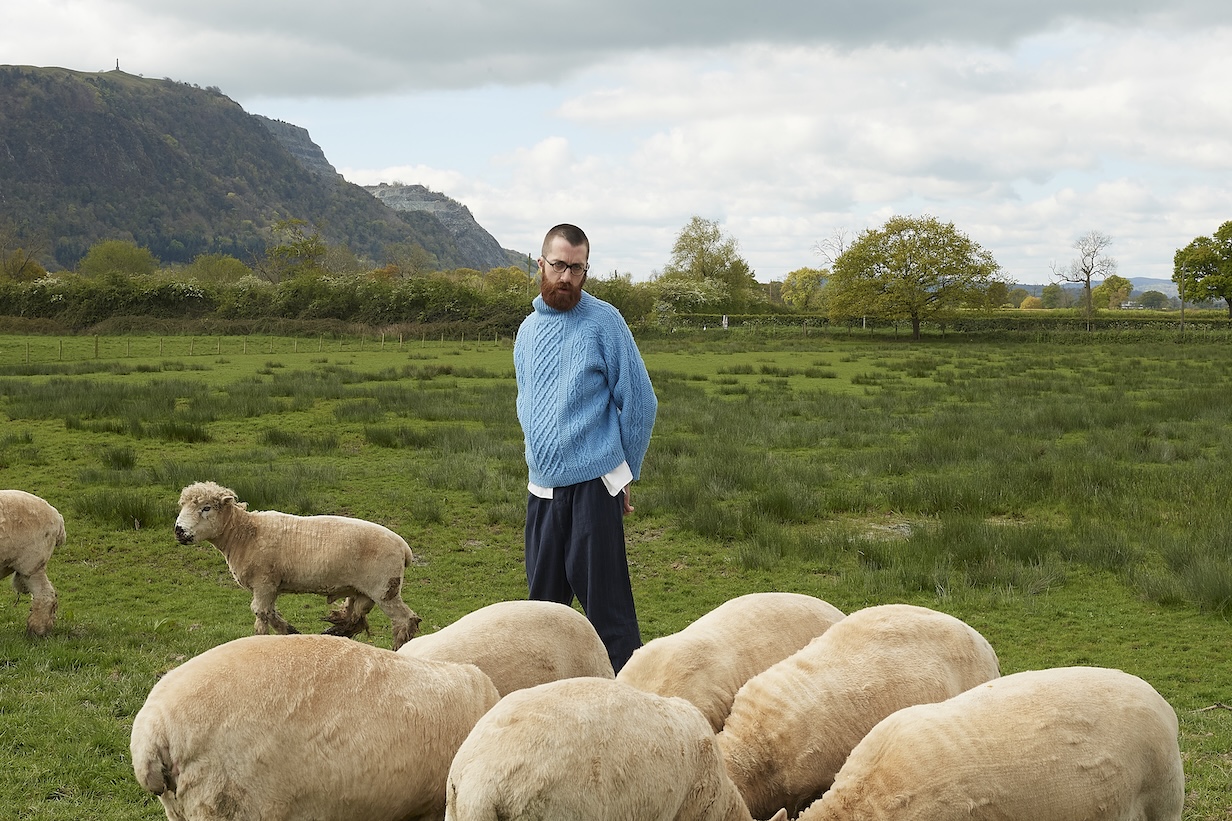
It’s an album of a lot of different textures. Some are dance, electro-pop, punk.
I struggle with describing it helpfully. This album, I’m thinking of it as 10 folk songs in a certain very liberal sense. I think calling them folk songs seems the most accurate thing. This album, more than anything I’ve done, really feels like a really big mix of everything that has shaped me musically. My upbringing, stuff like music in the church, classical music, violin, piano, orchestras, but also writing, being raised in a very literary household.
The lyrics for this album I’m very proud of and I spent a lot of time trying to work out how they could really accurately identify what I was thinking without resorting to anything too base. There’s that part of my upbringing. Also I think, the stuff from South London. Cameron, Geordie, and Morgan from the former band Black Midi are all playing different parts of the album. I think there’s a lot of influence from the South London scene, from the Windmill Brixton.
I’ve been lucky enough to have my peers alongside me. This album really feels like a big combination of that. Even the film stuff as well. I completed the scores for two films and I think that gave me a more cinematic sense, which I don’t think I would have unless I had the opportunity.
Yes, this really feels like the product of a huge amount of experience musically.
This album is going to come out about the same time that Bugonia premieres?
Yes, I think they’re both really ambitious projects. With the new film score, we got a 90-piece orchestra in to do the whole thing. The whole film is insane. In their own ways, both the score and the album are some of the most ambitious music I’ve done. It’s interesting seeing maybe certain themes or things that run through the music, the different music I’ve done.
I have moved around different genres for years, just because I don’t see myself as a pop or folk singer or a rapper or a composer or anything. I don’t find that helpful. I think I use the tool that is the most suitable for getting that idea across. I think it’s the same as, say, Stanley Kubrick who wasn’t a horror film director or a war film director or sci-fi director but approached his films like “Okay, this is the story I want to tell. This is the environment it’s in.”
The genre seems secondary. I’ve never been able to understand people who are so wedded to a certain genre. I find it a very impressive form of commitment, that I’m sure my therapist can say something about me avoiding it. In terms of things that tie stuff together, I really like to weaponize things that musicians and songwriters seem to quite rarely weaponize, especially male ones. I think cuteness is really important. I think cuteness can be extremely profound or powerful when it’s used in the right sense.
I think if there’s anything that connects what I do musically, it’s the decision making. If I’m to choose between something that isn’t dumb and something that is really dumb, I will without exception, gravitate towards the dumbest thing possible every time.
I think these are so much more effective ways of getting to the heart of something which is actually true and real and human.
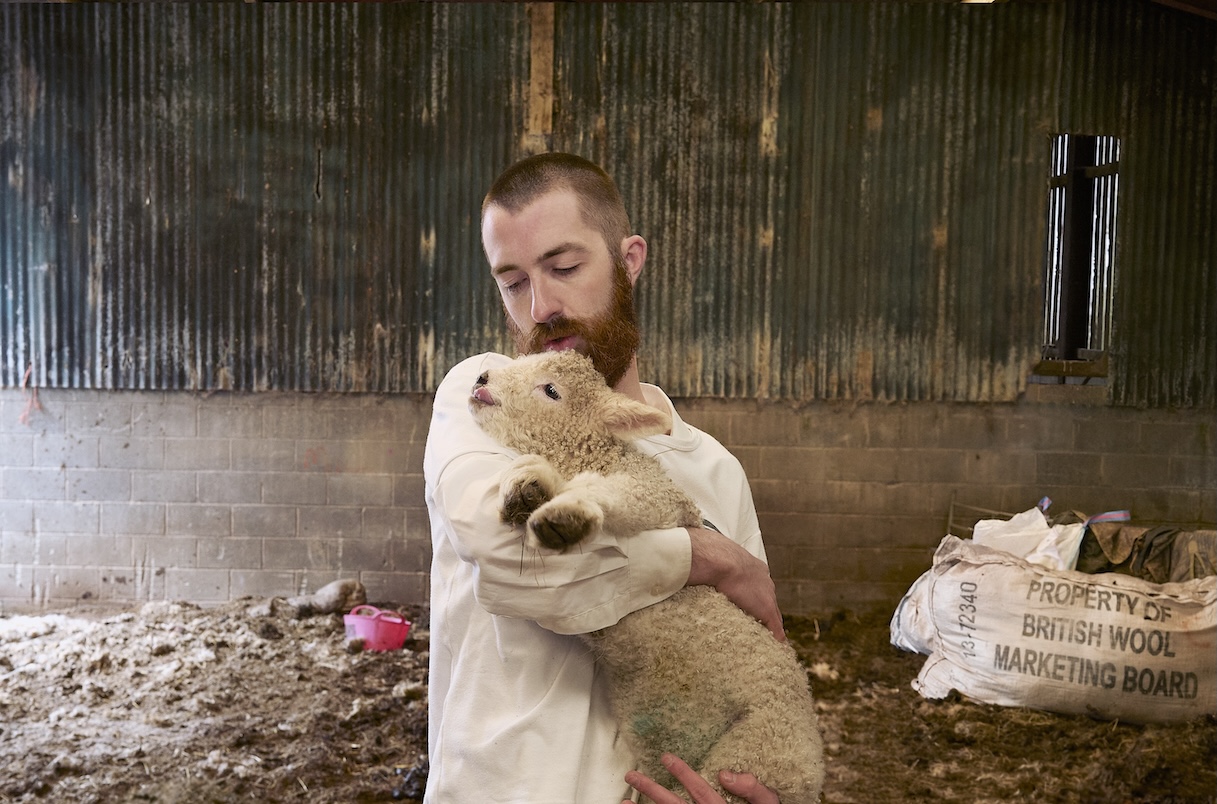
I want to end with a quote of yours I like. “What is life if not a series of having things and losing them?” I think what your album achieves is the ability to hold the loss of time in your hands.
Yes, thank you for that. I’m not going to be able to say anything more concise than that. It feels like what makes life good equates to having things. Then automatically, losing them is supposed to be bad. When I’ve been in my slightly more mature moments or times when I’m given the space to think about these ideas from a wider lens, I think losing things and the resulting grief with this loss isn’t negative, in a weird way. How loss makes you feel or how it alters your life for future events means losing things is as important as receiving or having them. I think it’s just as beautiful.
It makes sense to think that bad things are bad and good things are good. How often do you manage to experience something that so searingly and blindingly confirms how much you care about other people? These fleeting moments are really important gifts and the loss you feel after they’ve happened is as important as how you felt when they were in front of you.
To see our running list of the top 100 greatest rock stars of all time, click here.
